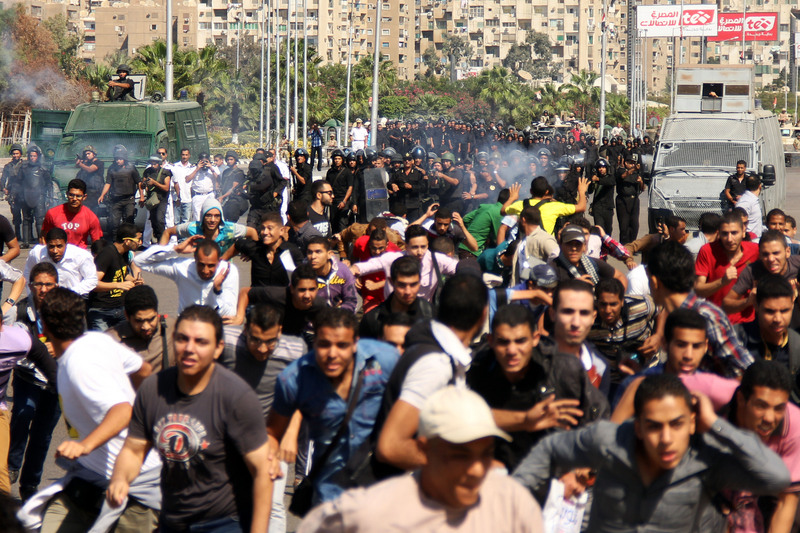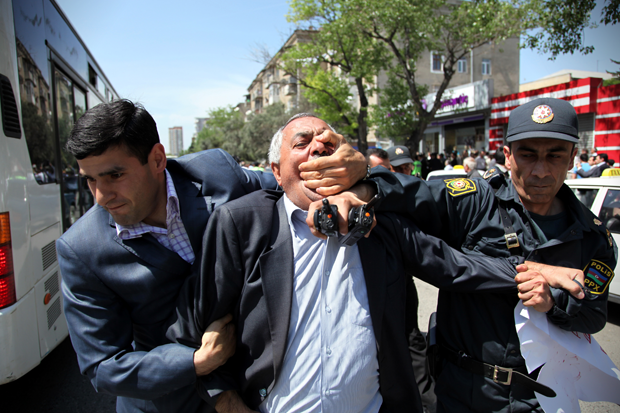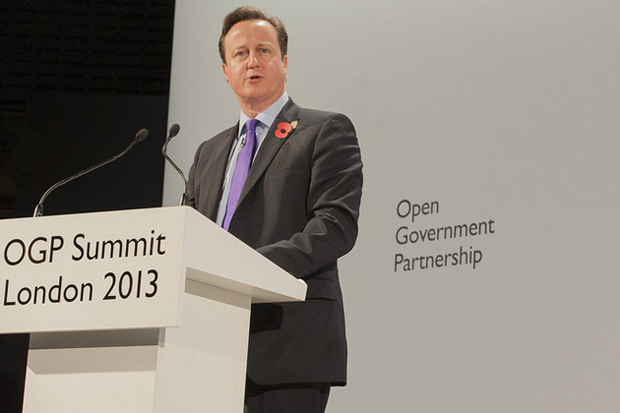4 Nov 2013 | Digital Freedom, News

We can partially blame gerrymandering for the current gridlock in the U.S. Congress. By shaping the electoral map to create politically safe spaces, we have generated a fractious body that often clashes rather than collaborates, limiting our chances of resolving the country’s toughest challenges. Unfortunately, revelations about the global reach of American security surveillance programs under the National Security Agency (NSA) are leading some to propose what amounts to gerrymandering for the internet in order to route around NSA spying. This will shackle the internet, inherently change its technical infrastructure, throttle innovation, and likely lead to far more dangerous privacy violations around the globe.
Nations are rightly upset that the communications of their citizens are swept up in the National Security Agency’s pervasive surveillance dragnet. There is no question the United States has overreached and violated human rights in its collection of communications information on innocent people around the globe; however, the solution to this problem should not, and truly cannot, be data localization mandates that restrict data storage and flow.
The calls for greater localization of data are not new, but the recent efforts of Brazil’s President, Dilma Rouseff, to protect Brazilians from NSA spying reflected the view of many countries suddenly faced with a new threat to the privacy of the communications of their citizens. Rouseff has been an advocate for internet freedom, so undoubtedly her proposal is well intentioned, though the potential unintended repercussions are alarming.
First, it’s important to consider the technical reasons why data location requirements are a really bad idea. The Internet developed in a widely organic manner, creating a network that allowed data to flow from all corners of the world – regardless of political boundaries, residing everywhere and nowhere at the same time. This has helped increase the resilience of the internet and it has promoted significant efficiencies in data flow. As is, the network routes around damage, and data can be wherever it best makes sense and take an optimal route for delivery.
Data localization mandates would turn the internet on its head. Instead of a unified internet, we would have a fractured internet that may or may not work seamlessly. We would instead see districts of communications that cater to specific needs and interests – essentially we would see Internet gerrymandering at its finest. Countries and regions would develop localized regulations and rules for the internet to benefit them in theory, and would certainly aim to disadvantage competitors. The potential for serious winners and losers is huge. Certainly the hope for an internet that promotes global equality would be lost.
Data localization may only be a first step. Countries seeking to keep data out of the United States or that want to exert more control over the internet may also mandate restrictions on how data flows and how it is routed. This is not far-fetched. Countries such as Russia, the United Arab Emirates, and China have already proposed this at last year’s World Conference on International Telecommunications.
As internet traffic begins to demand more bandwidth, especially as we witness more real-time multimedia applications, efficient routing is essential to advance new internet services. High capacity applications like Apple’s FaceTime may slow to the painful crawl reminiscent of the dial-up days of the internet.
This only begins to illustrate the challenges internet innovators would face, but big established players like Facebook, Google and Microsoft, would potentially have the resources to abide by localization mandates – of course, only if the business case supports working in particular locales. Some countries with local storage rules may be bypassed altogether. For small or emerging businesses, data localization requirements would be a greater challenge. It would build barriers to markets and shut off channels for innovation. Few emerging businesses could afford to locate servers in every new market, and if local data server requirements become ubiquitous, it will be businesses in emerging markets that are most disadvantaged. The reality for developing nations is that protectionist measures such as data localization will further isolate local business from the global market, depriving them of the advantages for growth that are provided by the borderless internet.
Most important though, is the potential for fundamental harm to human rights due to data localization mandates. We recognize that this is a difficult argument to accept in the wake of the revelations about NSA surveillance, but data localization requirements are a double-edged sword. It is important to remember that human rights and civil liberties groups have long been opposed to data localization requirements because if used inappropriately, such requirements can become powerful tools of control, intimidation and oppression.
When companies were under intense criticism for turning over the data of Chinese activists to China, internet freedom activists were united in theirs calls to keep user data out of the country. When Yahoo! entered the Vietnamese market, it placed its servers out of the country in order to better protect the rights of its Vietnamese users. And the dust up between the governments of the United Arab Emirates, Saudi Arabia, India, and Indonesia, among others, demanding local servers for storage of BlackBerry messages in order to ensure legal accountability and meet national security concerns, was met with widespread condemnation. Now with democratic governments such as Brazil and some in Europe touting data localization as a response to American surveillance revelations, these oppressive regimes have new, albeit inadvertent, allies. While some countries will in fact store, use and protect data responsibly, the validation of data localization will unquestionably lead to many regimes abusing it to silence critics and spy on citizens. Beyond this, data server localization requirements are unlikely to prevent the NSA from accessing the data. U.S. companies and those with a U.S. presence will be compelled to meet NSA orders, and there appear to be NSA access points around the world.
Data localization is a proposed solution that is distracting from the important work needed to improve the Internet’s core infrastructural elements to make it more secure, resilient and accessible to all. This work includes expanding the number of routes, such as more undersea cables and fiber runs, and exchange points, so that much more of the world has convenient and fast Internet access. If less data is routed through the U.S., let it be for the right reason: that it makes the Internet stronger and more accessible for people worldwide. We also need to work to develop better Internet standards that provide usable privacy and security by default, and encourage broad adoption.
Protecting privacy rights in an era of transborder surveillance won’t be solved by ring fencing the Internet. It requires countries, including the U.S., to commit to the exceedingly tough work of coming to the negotiating table to work out agreements that set standards on surveillance practices and provide protections for the rights of privacy and free expression for people. Germany and France have just called for just such an agreement with the U.S. This is the right way forward.
In the U.S., we must reform our surveillance laws, adopt a warrant requirement for stored email and other digital data, and implement a consumer privacy law. The standards for government access to online data in all countries must likewise be raised. These measures are of course much more difficult in the short run that than data localization requirements, but they are forward-looking, long-term solutions that can advance a free and open internet that benefits us all.
Joseph Lorenzo Hall, Chief Technologist at Center for Democracy and Technology, co-authored this piece with Leslie Harris.
This article was originally posted on 4 Nov 2013 at indexoncensorship.org
4 Nov 2013 | Egypt, News

Students from the Al-Azhar University clashed today outside the University campus, in Cairo, after staging a anti-military protest. At Cairo University Morsi and Anti-Morsi supporters also scuffled. Photo: Demotix
As the trial of deposed President Mohamed Morsi and 14 other Muslim Brotherhood leaders opened in Cairo on Monday morning, the tension on the streets of the Egyptian capital was palpable.
The Anti-Coup Coalition, led by members of the now-outlawed Muslim Brotherhood, had earlier called for nationwide street protests including rallies outside the building in Tora, south Cairo where the trial was to have taken place. In an effort to avert violence however, the authorities on Sunday afternoon announced a change of venue , saying the trial would instead be held at the Police Academy in the Fifth Settlement district in eastern Cairo. The Interior Ministry has meanwhile beefed up security across the city, deploying some 20,000 riot police to guard the courthouse. Despite the heightened security, a fresh outbreak of violence seems inevitable with clashes between security forces and the Islamist protesters widely anticipated.
Since the ouster of the Islamist President by a military coup in early July, about 1,000 people have been killed in nationwide clashes and more than 2,000 others have been arrested in a brutal security crackdown on the now-banned Islamist group from which the toppled president hails. Essam Al Erian, Deputy leader of the Freedom and Justice Party, the Muslim Brotherhood’s political wing, was arrested in Eastern Cairo’s suburb of the Fifth Settlement on Wednesday. He faces detention for thirty days on charges of ” inciting murder of the group’s opponents” during protests staged in Giza last July that left 9 people dead.
Al Erian’s arrest sparked a new round of angry student protests at universities across the country, including in Cairo and Alexandria. Al Azhar University in Cairo was the scene of some of the worst violence. Thousands of angry pro-Morsi students demanding ” the reinstatement of the legitimate president” stormed the university’s administrative building , smashing windows and besieging the offices of the university’s chief and other administrators. While some clerics and professors at Al Azhar support the Muslim Brotherhood, most of the university’s administrative staff have generally toed the government line. Forty-four students were arrested for “rowdy behaviour” during Wednesday’s protests . They insisted however, that their protests were “peaceful”, saying “infiltrators” had been sent by security officials to create mayhem so as to justify their arrest.
Meanwhile, 22 young women members of the Muslim Brotherhood were arrested on Thursday on accusations of “disrupting traffic during protests, distributing illegal leaflets and being members of an outlawed group.” Members of the group who spoke to Index on condition of anonymity, said the charges were “politically-motivated” and were “an attempt to silence dissent ahead of Morsi’s trial”.
The latest arrests are likely to fuel the already high tensions between Muslim Brotherhood supporters and the army, accused by rights groups of ” rights abuses and authoritarian measures that will drag the country back to the pre-January 2011 police state.” Since Morsi’s ouster, the country has seen the reimposition of the 30 year-old state of emergency (which prevailed under toppled president Hosni Mubarak) and the return of state security. A night time curfew, in place since mid August, is affecting the livelihoods of millions of Egyptians, many of whom are accustomed to working night shifts. Meanwhile , a draconian protest bill , currently under review by the interim president, will–if signed into law–restrict the right to protest, granting the interior ministry the authority to prevent and abolish protests and marches while completely criminalizing sit-ins. Furthermore, the 2012 constitution, currently being amended by a panel of liberals and leftists, reportedly grants the military special privileges. Shielding the army from accountabilitiy and preserving military trials of civilians, the new constitution thus guarantees that the army will remain ” a state above the state”, warns Political Scientist and rights activist Amr Hamzawy in an article published this week in the Atlantic Council.
All the above measures signal a reversal of the gains made since the January 2011 uprising that unseated authoritarian president Hosni Mubarak. But the biggest loss perhaps, has been the reinstatement of the culture of fear.Ironically, leftist and liberal parties and movements that joined the uprisings against both Mubarak and Morsi, have turned a blind eye to the rights abuses practiced by the de facto government against Islamists. Worse still, some liberals have at times, even condoned the repression citing “national security concerns”. Such a complacent attitude spells the demise of the nascent democratic movement in Egypt even before it takes off the ground, warn the analysts. ” In justifying authoritarianism, Egypt’s liberals have abandoned the principles and values of democracy, compromising their moral and political credibility and accepting the disappearance of humanity itself ,” laments Hamzawy.
This article was originally posted on 4 Nov 2013 at indexoncensorship.org
1 Nov 2013 | Azerbaijan, Azerbaijan News, Europe and Central Asia, News

Narimanov Park, Baku, 15 May 2010. Police forcibly detain a political activist during an unsanctioned protest. Photograph by Abbas Atilay
Press release from the Institute for Reporters’ Freedom and Safety (IRFS)
Azerbaijan’s government has unleashed a massive crackdown on the civil society and media in the wake of the October presidential election, the Institute for Reporters’ Freedom and Safety (IRFS) said today.
A group of police investigators yesterday raided the office of the Election Monitoring and Democracy Studies Centre (EMDSC), the independent election watchdog that enraged the government by reporting irregularities surrounding the Azerbaijan’s election.
The raid began around 11:00 am yesterday in Azerbaijan’s capital, Baku and lasted for five hours. Computers and documents were seized. The Prosecutor General’s Office launched investigation “regarding irregularities recorded at the Election Monitoring and Democracy Studies Centre”.
The raid on the election watchdog NGO signalled a sharp and very serious escalation of the country’s deepening human rights and political crisis. “It’s a clear message to the government’s critics: ‘Don’t get involved in any issues that question legitimacy of the presidential election”, IRFS CEO and chairman Emin Huseynov said.
“The Election Monitoring and Democracy Studies Centre’s work for free and fair elections contributed to the implementation of Azerbaijan’s international commitments notably within the Council of Europe and the OSCE. The authorities must recognise this work and immediately stop harassment of the organisation”, Huseynov said.
IRFS believes that the government is conducting a carefully coordinated witch hunt aimed at discrediting critics of the government, and particularly those active in the election period.
In a separate case, one of the most vocal critics of the government, a Baku-based opposition newspaper Azadliq faces revenge in court for exposing the government corruption and reporting electoral fraud. The bank accounts of the newspaper are frozen (arrested) over huge defamation debt. ‘It’s a fairly urgent situation. The newspaper faces closure after 24 years of operation. The government has never gone so far in silencing the media’, Huseynov said.
IRFS calls on the Azerbaijani government to end its harassment of media, civil society and activists and take steps to assure that freedom of expression becomes a reality for all.
“Instead of attacking civil society organisations in Azerbaijan and beyond, the government must begin having open dialogue with them. This would allow Azerbaijani citizens to become involved in the decision-making process”, Emin Huseynov of IRFS said.
IRFS reminds that, less than a month after the presidential vote, independent media outlets and human right defenders are still facing unprecedented levels of repression and harassment and the number of prosecutions are on the increase. IRFS calls on the Azerbaijani Government to immediately release all journalists, opposition activists and human rights defenders.
IRFS condemns the failure of the Azerbaijani Government to heed calls from international and regional bodies, such as the Council and Europe, the European Union (EU), Organization for Security and Cooperation in Europe (OSCE) and the United Nations (UN) to respect and protection of human rights, including freedom of expression.
1 Nov 2013 | News, United Kingdom

State control of the press is hot topic. On Wednesday, Queen Elizabeth signed off a Royal Charter which gives politicians a hand in newspaper regulation. This come after David Cameron criticised the Guardian’s reporting on mass surveillance, saying “If they don’t demonstrate some social responsibility it will be very difficult for government to stand back and not to act”.
But what does state control of the press really look like? Here are 10 countries where the government keeps a tight grip on newspapers.
Bahrain
Press freedom ranking: 165
The tiny gulf kingdom in 2002 passed a very restrictive press law. While it was scaled back somewhat in 2008, it still stipulates that journalists can be imprisoned up to five years for criticising the king or Islam, calling for a change of government and undermining state security. Journalists can be fined heavily for publishing and circulating unlicensed publications, among other things. Newspapers can also be suspended and have their licenses revoked if its ‘policies contravene the national interest.’
Belarus
Press freedom ranking: 157
In 2009 the country known as Europe’s last dictatorship passed the Law on Mass Media, which placed online media under state regulation. It demanded registration of all online media, as well as re-registration of existing outlets. The state has the power to suspend and close both non-registered and registered media, and media with a foreign capital share of more than a third can’t get a registration at all. Foreign publications require special permits to be distributed, and foreign correspondents need official accreditation.
China
Press freedom ranking: 173
The country has a General Administration of Press, Publication, Radio, Film and Television and an army official censors dedicated to keeping the media in check. Through vaguely worded regulation, they ensure that the media promotes and toes the party line and stays clear of controversial topics like Tibet. A number of journalists have also been imprisoned under legislation on “revealing state secrets” and “inciting subversion.”
Ecuador
Press freedom ranking: 119
In 2011 President Rafael Correa won a national referendum to, among other things, create a “government controlled media oversight body”. In July this year a law was passed giving the state editorial control and the power to impose sanctions on media, in order to stop the press “smearing people’s names”. It also restricted the number of licences will be given to private media to a third.
Eritrea
Press freedom ranking: 179
All media in the country is state owned, as President Isaias Afwerki has said independent media is incompatible with Eritrean culture. Reporting that challenge the authorities are strictly prohibited. Despite this, the 1996 Press Proclamation Law is still in place. It stipulates that all journalists and newspapers be licensed and subject to pre-publication approval.
Hungary
Press freedom ranking: 56
Hungary’s restrictive press legislation came into force in 2011. The country’s media outlets are forced to register with the National Media and Infocommunications Authority, which has the power to revoke publication licences. The Media Council, appointed by a parliament dominated by the ruling Fidesz party, can also close media outlets and impose heavy fines.
Saudi Arabia
Press freedom ranking: 163
Britain isn’t the only country to tighten control of the press through royal means. In 2011 King Abdullah of Saudi Arabia amended the media law by royal decree. Any reports deemed to contradict Sharia Law, criticise the government, the grand mufti or the Council of Senior Religious Scholars, or threaten state security, public order or national interest, are banned. Publishing this could lead to fines and closures.
Uzbekistan
Press freedom ranking: 164
The Law on Mass Media demands any outlet has to receive a registration certificate before being allowed to publish. The media is banned from “forcible changing of the existing constitutional order”, and journalists can be punished for “interference in internal affairs” and “insulting the dignity of citizens”. Foreign journalists have to be accredited with the Ministry of Foreign Affairs.
Vietnam
Press freedom ranking: 172
The 1999 Law on Media bans journalists from “inciting the people to rebel against the State of the Socialist Republic of Vietnam and damage the unification of the people”. A 2006 decree also put in place fines for journalists that deny “revolutionary achievements” and spread “harmful” information. Journalists can also be forced to pay damages to those “harmed by press articles”, regardless of whether the article in question is accurate or not.
Zimbabwe
Press freedom ranking: 133
The country’s Access to Information and Protection of Privacy Act gives the government direct regulatory power over the press through the Media and Information Council. All media outlets and journalists have to register with an obtain accreditation from the MIC. The country also has a number of privacy and security laws that double up as press regulation, The Official Secrets Act and the Public Order and Security Act.
This article was originally posted on 1 Nov 2013 at indexoncensorship.org.




